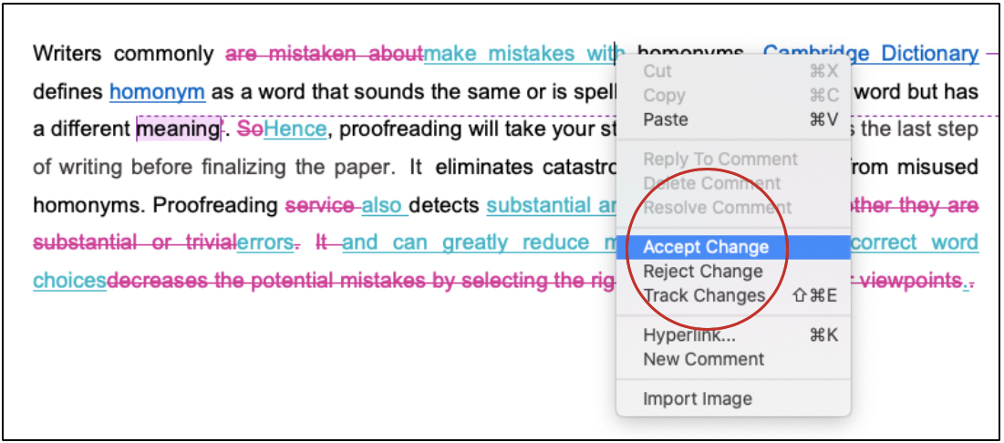Writing articles for journals requires scholars to possess exceptional writing skills and awareness of their subject matter. They need to write such that their manuscript relays its central idea explicitly to the readers. In addition, they need to abide by strict writing conventions and best practices to befit the parameters of journal articles. It is not uncommon for research initiates and, at times, even experts to struggle with the article writing process. This article aims to mitigate some apprehension associated with writing journal articles by enlisting and expounding upon some essential writing tips.

Publishing articles in reputed journals is no less than a career highlight for research scholars. Not only does it work as a testament to their academic prowess, but it also garners respect and admiration from fellow academics. As such, it becomes a core necessity for any research scholar, regardless of years spent in academia, to know the process of writing a journal article. However, writing articles for journals requires scholars to possess exceptional writing skills and awareness of their subject matter. They need to write such that their manuscript relays its central idea explicitly to the readers. In addition, they need to abide by strict writing conventions and best practices to befit the parameters of journal articles.
It is not uncommon for research initiates and, at times, even experts to struggle with the article writing process. This article aims to mitigate some apprehension associated with writing journal articles by enlisting and expounding upon some essential writing tips. Readers should take note of these tips and employ them suitably to write journal articles that are worth publishing.
The tips mentioned below, though not exhaustive, provide insights into the ideal modus operandi of journal article writing.
Before initiating the writing process, writers should determine to which journal they are aiming to submit their work. Scholars can contour their articles according to the specific guidelines offered by the journal. However, due to the sheer number of research journals available today, pinpointing one can be a monumental task. Thus, scholars should consider the following factors when specifying their target journals:
A journal's scope
Peer-review process
Rejection rate
Indexing in major journal databases
Guidelines for authors.
It will not be an understatement to say that the layout of a journal article is its backbone. A well-designed layout works toward helping the readers traverse through the body of the article seamlessly. In addition, with a well-defined article format, authors can concentrate equally on the individual and holistic level of their manuscript. Thus, scholars should first set aside an appropriate layout for their article. Typically, research articles follow the generic IMRaD structure. However, one should thoroughly examine the requisites of the journal to which they are submitting their work.
Precise language is a must when writing a research article. However, one more element that equally maintains its legibility is its bibliography. Referring to credible research literature enables authors to develop and fortify their academic arguments considerably well.
Furthermore, reputable research sources highlight an author's knowledge of research works pertaining to their subject matter. They act as a hallmark of the author's awareness of relevant research works in their field of study. Thus, every scholar should put great effort into putting together a research library to fuel the plausibility of their works.
Editing and proofreading are two elements of the writing process that can make or break a manuscript's publishing prospects. It is not just rectifying the grammatical mistakes but also the tonal and contextual errors in a text that make editing and proofreading pivotal. Correctly editing and proofreading a manuscript also removes inconsistencies such as academic taboo words, weak arguments, and intricate structure. Thus, authors should allot significant time editing and proofreading their articles and not liken these processes to last-minute formalities.
Editing and proofreading are resource-intensive processes that require an exceptional understanding of language and grammar. Hence, it is understandable that editing their works themselves might prove difficult for some authors. In such cases, recruiting professional editing and proofreading services might be a promising alternative.
Journal articles are some of the most veritably researched and scrutinized academic texts. And rightfully so, since such articles do the noble job of contributing valuable content to the academic community. Hence, the skills and efforts that go into writing these articles should also be of a higher degree.
Writing a journal article, though seemingly laborious, boils down to creating a text that carries the stigmas of rich knowledge and clarity. As such, research scholars should make it a point to absorb all the aforementioned writing tips and exercise them appropriately in their writings.
Best Edit & Proof expert editors and proofreaders focus on offering manuscripts with proper tone, content, and style of academic writing, and also provide an upscale editing and proofreading service for you. If you consider our pieces of advice, you will witness a notable increase in the chance for your research manuscript to be accepted by the publishers. We work together as an academic writing style guide by bestowing subject-area editing and proofreading around several categorized writing styles. With the group of our expert editors, you will always find us all set to help you identify the tone and style that your manuscript needs to get a nod from the publishers.

You can also avail of our assistance if you are looking for editors who can format your manuscript, or just check on the particular styles for the formatting task as per the guidelines provided to you, e.g., APA, MLA, or Chicago/Turabian styles. Best Edit & Proof editors and proofreaders provide all sorts of academic writing help, including editing and proofreading services, using our user-friendly website, and a streamlined ordering process.
Visit our order page if you want our subject-area editors or language experts to work on your manuscript to improve its tone and style and give it a perfect academic tone and style through proper editing and proofreading. The process of submitting a paper is very easy and quick. Click here to find out how it works.
Our pricing is based on the type of service you avail of here, be it editing or proofreading. We charge on the basis of the word count of your manuscript that you submit for editing and proofreading and the turnaround time it takes to get it done. If you want to get an instant price quote for your project, copy and paste your document or enter your word count into our pricing calculator.
Contact us to get support with academic editing and proofreading. We have a 24/7 active live chat mode to offer you direct support along with qualified editors to refine and furbish your manuscript.
Follow us on Twitter, LinkedIn, Facebook, Instagram, and Medium.
For more posts, click here.
This article aims to mitigate some apprehension associated with writing journal articles by enlisting and expounding upon some essential writing tips. To give you an opportunity to practice proofreading, we have left a few spelling, punctuation, or grammatical errors in the text. See if you can spot them! If you spot the errors correctly, you will be entitled to a 10% discount.
How to Determine Variability in a Dataset
14.10.2023
How to Determine Central Tendency
19.02.2023
How to Specify Study Variables in Research Papers?
14.01.2023
Population vs Sample | Sampling Methods for a Dissertation
14.01.2023
How to Ensure the Quality of Academic Writing in a Thesis and Dissertation?
04.12.2022
How to Avoid Anthropomorphism in Your Dissertation?
04.11.2022
How to Write a Research Methodology Section for a Dissertation and Thesis
07.08.2022
How to Write a Theoretical Framework for a Dissertation and Thesis?
05.08.2022
How to Write Literature Review for a Dissertation and Thesis
02.08.2022
How to Write a Dissertation and Thesis Introduction
31.07.2022

Online databases involve scholarly and reviewed articles penned by highly qualified authors such as researchers, journalists, or experts in their field. In this article, you will find 10 free online databases for researchers. They offer intense search tools to narrow the results so that any student can easily collect the required information.
Continue Reading
Some might say that the only difference between academic and business writing is the fact that the former is practiced by scholars while the latter by professionals. However, when perused closely, one can discern some stark as well as nuanced demarcation between the two. For individuals, such as college graduates, who need to occasionally shift between academic writing and business writing, knowing these differences can help them format their respective documents appropriately.
Continue Reading
While composing a thesis or dissertation, a student must experience some predicted traps. Falling into these traps can affect one’s academic career. However, handling potential blunders and pitfalls wisely, while developing a thesis, can lead you to success. The process of writing may be frustrating but learning about the probable pitfalls may ease your stress. Here, we bring you the list of the most common mistakes we have noticed as a professional proofreading and editing service provider.
Continue Reading
At the end of most undergraduate or postgraduate degrees, you are required to submit a thesis or a dissertation based on original research. The way of writing and the structure of a dissertation depends on your field of study and sometimes your program. However, it is largely divided into at least four or five chapters, including the introduction and conclusion. A dissertation is an extended usually written treatment of a subject, specifically one submitted for a doctorate. This article provides a step-by-step guide on writing and structuring a dissertation
Continue Reading
While researching a group of people, collecting data from every person in that group is virtually impossible. To counter this issue, you choose a sample. What is the difference between population and sample? What sampling methods should you use in your dissertation?
Continue Reading